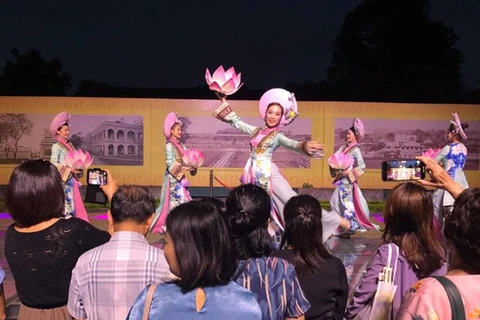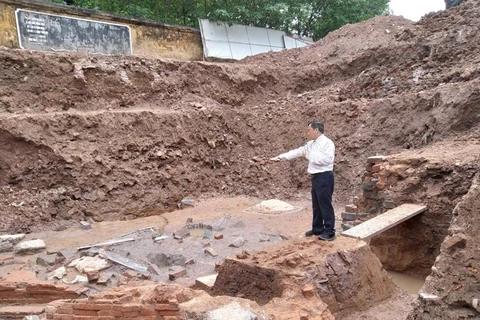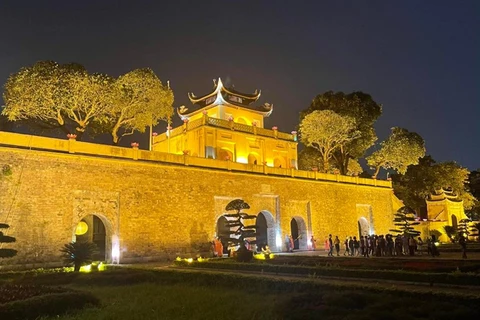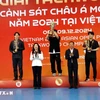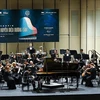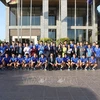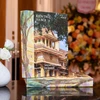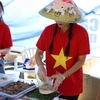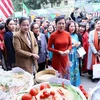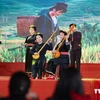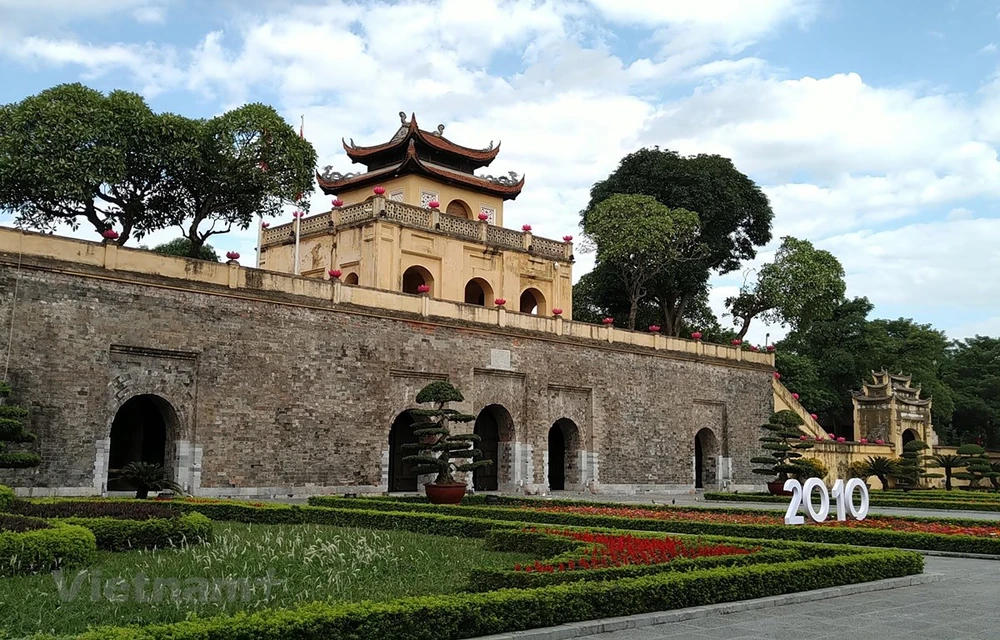
Hanoi (VNA) - An international workshop to review the 20 years of researching, preserving and promoting the heritage value of the Imperial Citadel of Thang Long-Hanoi will take place on September 8-9.
The hybrid event is expected to draw the participation of about 200 domestic and international delegates, including those from Asian countries with palace systems such as China, Japan, and the Republic of Korea.
The information was released by Nguyen Thanh Quang, Director of the Thang Long-Hanoi Heritage Conservation Centre, at a press conference in Hanoi on August 31.
The Hanoi People's Committee co-organises the workshop with the UNESCO Office in Hanoi and the Vietnam Association of Historical Sciences. The event also celebrates the 50th anniversary of the Convention Concerning the Protection of the World Cultural and Natural Heritage – the 1972 UNESCO Convention.
Participants will share remarkable achievements in the management, research, preservation and promotion of values at the citadel since the first discoveries were announced in 2002, while discussing orientations for future activities, Thanh said.
This is also an opportunity to promote the image of the central section of the Imperial Citadel of Thang Long-Hanoi, a must-see destination in the capital city and a future cultural and historical park, he noted.
The Thang Long-Hanoi Heritage Conservation Centre is currently focusing on implementing the projects to restore the space of Kinh Thien Palace, improve displays, re-enact traditional rituals, and promote the application of information technology in heritage management and conservation.
For his part, Professor Tran Duc Cuong, President of the Vietnam Association of Historical Sciences, said Thang Long Imperial Citadel holds special significance to Hanoi and Vietnam in general.
He said promoting the values of this heritage is extremely necessary for the next generations to know that Vietnam owns a cultural tradition spanning thousands of years.
"This conference is an opportunity for us to reflect on what we have done and what needs to be done to preserve and promote cultural values as committed to the UN Educational and Scientific Cooperation Organisation (UNESCO). We are preserving the heritage not only for the Vietnamese people but for humanity," said Cuong.
Along with the workshop, participants will also enjoy other cultural activities held at the citadel, such as the Mid-Autumn Festival and an exhibition showcasing outstanding artefacts found during the excavations at the citadel.
The Thang Long Imperial Citadel was built in the 11th century under the Ly Dynasty, marking the independence of the Dai Viet. It was constructed on the remains of a Chinese fortress dating from the 7th century, on drained land reclaimed from the Red River Delta in Hanoi. It was the centre of regional political power for almost 13 centuries. The Imperial Citadel buildings and the remains in the 18 Hoang Dieu Archaeological Site reflect a unique Southeast Asian culture specific to the lower Red River Valley, at the crossroads between influences coming from China in the north and the ancient Kingdom of Champa in the south.
The citadel is characterised by its longevity and continuity as a seat of power, evidenced by different archaeological levels and monuments.
The Central Sector of the Imperial Citadel of Thang Long-Hanoi, located in the heart of the capital of Vietnam, is the most important and best-preserved part of the ancient Imperial Citadel. It was recognised as a World Heritage Site by UNESCO in August 2010.
Kinh Thien Palace is the main building in the central sector of the citadel, which is located in downtown Hanoi today. It sits in the centre of the complex, facing Doan Mon (south gate) and Flag Tower.
The palace was built in 1428 and is believed to be highly important, hosting many royal ceremonies. It was also where royals were invited to discuss national issues.
It was almost destroyed at the end of the 19th century by the French colonialists, but all that remains today is a 100-cm-high bannister to the south of the plot and several large stone steps with dragon carvings./.
